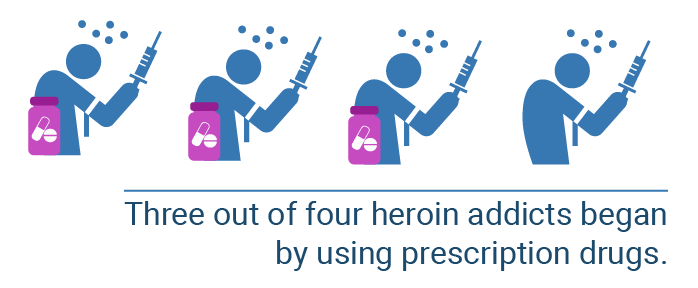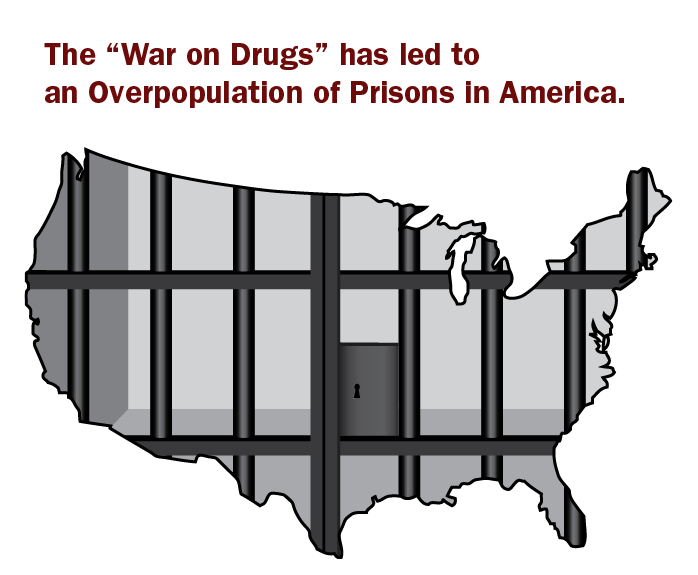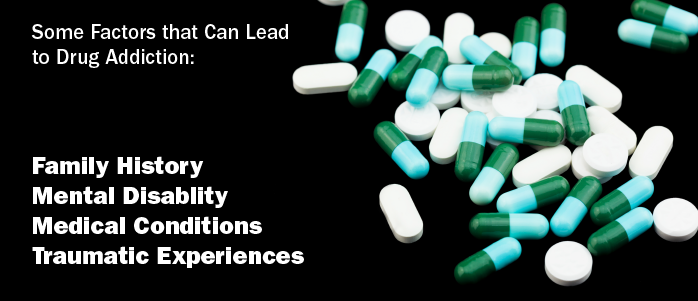Treating Drug Addiction: Incarceration or Rehabiliation
As the U.S. opioid epidemic continues to spiral out of control, presidential candidates have continuously been barraged on the campaign trail with questions about how to handle the drug addiction crisis. Independent Vermont Senator Bernie Sanders was not shy about his stance on treating drug addiction during a recent Democratic Presidential debate:
We need to understand that addiction is a disease, not a criminal activity.
“I think we have got to tell the medical profession and doctors who are prescribing opiates, and the pharmaceutical industry that they have got to start getting their act together. We cannot have this huge number of opiates out there throughout this country where young people are taking them, getting hooked and then going to heroin,” Sanders said at the New Hampshire debate sponsored by ABC News. “We need to understand that addiction is a disease, not a criminal activity. And that means radically changing the way we deal with mental health and addiction issues.”
Sanders’ sentiment has been echoed by others in the Democratic race and by several leading science and medical experts in the addiction recovery industry.
How Chronic Pain Turned to Chronic Addiction
From all corners of the nation, abuse of prescription painkillers and heroin has led to a record number of overdoses and has dominated headlines. Here is a brief look at some of the most recent statistics surrounding the new opioid drug addiction epidemic:
- Heroin-related deaths rose 39 percent from 2012 – 2013, and the rate of heroin-related overdose deaths nearly quadrupled from 2002 – 2013. More than 8,200 people died from heroin abuse in 2013. [1]
- Three out of four heroin addicts started out by using prescription drugs. [2]
- People who are dependent on prescription opioids are 40 times more likely to abuse or be dependent on heroin, than those who are not dependent on opioids. [3]
- 1.9 million Americans live with prescription opioid abuse or dependence; 517,000 Americans live with heroin addiction. Approximately 75 percent of people addicted to opioids will switch to heroin as a cheaper option. [4]
The opioid crisis in America is born from the rapidly increasing prevalence of chronic pain. According to multiple reports, there are an estimated 100 million Americans suffering from chronic pain – about a third of the nation’s population. [5] This increase in pain has led to a dramatic spike in prescribing of prescription painkillers.

Since 1999, the amount of painkillers prescribed by physicians has quadrupled. Deaths from painkillers also quadrupled during that time, with over 16,000 Americans dying from opioid abuse in 2013. [6] The 259 million painkiller prescriptions written in 2012 were enough for every adult in the nation to have their own bottle of pills. [7] The subsequent crackdowns on prescription opioids made the pills more difficult to acquire and abuse. High availability and low cost made heroin an easy replacement for many who were dependent on opioids. This is why the problem has moved from the dark corners and back alleys of the 70s and 80s to wealthy suburban neighborhoods today.
Criminalization Has Never Been the Right Solution
Incarceration has long been the strategy for dealing with drug abusers and addicts in the United States. Never has this been more apparent than during the ongoing “War on Drugs,” that has taken an incarceration over rehabilitation approach since 1971. This “War on Drugs” has long since been called a failure that has led to the overpopulation of jails and trillions of wasted tax dollars. [8]

Despite the passing of several anti-drug policies that favored criminalization over rehabilitation, drug abuse and addiction have risen, not declined. The results have led to the U.S. jailing more people than any other country in the world, most of whom are comprised of individuals from low-income areas, minorities and non-violent drug-offenders. The U.S. government has spent more than $51 billion per year on a system that has been proven largely ineffective. [9]
Relying on incarceration presumes that drug addiction is a conscious decision, though volumes of medical research have shown otherwise. It also assumes that the fear of punishment is enough to deter people from using and abusing drugs. According to the National Survey on Drug Use and Health, on any given day there are an estimated 20 million Americans over age 12 who have used an illicit substance within the past 30 days. [10] Being that this a number that has risen steadily, it’s clear that the threat of punishment is not a factor when people decide to use or abuse drugs.

Perhaps the largest problem with prioritizing incarceration over rehabilitation is the stigma it creates about drug addiction. Instead of coming forward and seeking available help, addicts are often forced to hide their issues until catastrophe strikes, and they hit rock bottom.
Drug Rehabilitation Works and Is Much Cheaper Then Incarceration
If addiction were simply a matter of choice, there would be far fewer drug and alcohol addicts in the nation. Chronic substance abusers are often influenced by mental disabilities, traumatic experiences, medical conditions and family history. Rather than making recovery and sobriety about willpower, rehabilitation creates a manageable path to success.
By focusing on the why and the how instead of the what, drug addiction treatment cuts to the root of the problem and provides a blueprint for long-term success. It also serves as a way to improve an addict’s health, mend broken family bonds and get a new and fresh start on life.

Taking control of an addiction involves a complete reevaluation of priorities and a total change in lifestyle. Attempting to do this without the help of trained and compassionate addiction recovery specialists is highly difficult and often results in failure. If self-rehab was a viable option, many addicts would cease using and destroying their lives. The fact is that rehabilitation is a difficult process in which addicts require as much help and support as possible.
BHOPB For Almost Two Decades Has Been Successfully Treating Drug Addiction
In our near two decades of existence, Behavioral Health of the Palm Beaches has helped thousands of people overcome drug addiction and remain sober. We have grown into national leaders in the addiction recovery field because of our constant pursuit of new and innovative addiction treatments and our commitment to ongoing research and leadership in the industry.
The longer an addiction is allowed to wreak havoc, the more difficult the path to recovery.
We have an in-depth comprehension of the nature of substance dependency and have helped people of all ages and walks of life take control of their drug and alcohol dependencies and their lives. We employ mental health experts, onsite nurses and physicians and a team of caring therapists who know what addicts are going through and understand how to help them succeed.
If you or someone you love is struggling with alcoholism or drug addiction, the time to get help is now. The longer an addiction is allowed to wreak havoc, the more difficult the path to recovery. Contact our professionals today to learn about our treatment options, detoxification programs and our long-term success rates.



